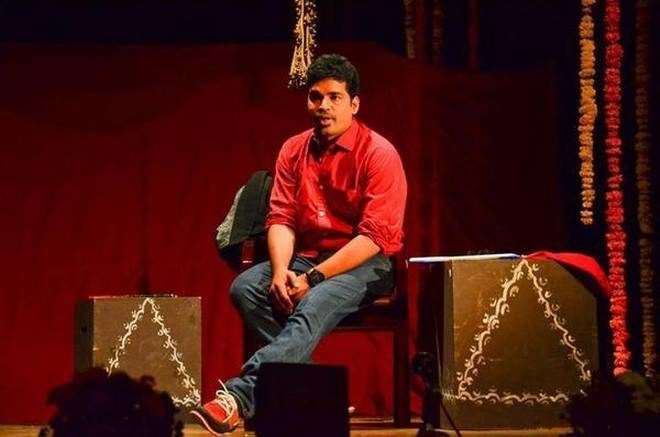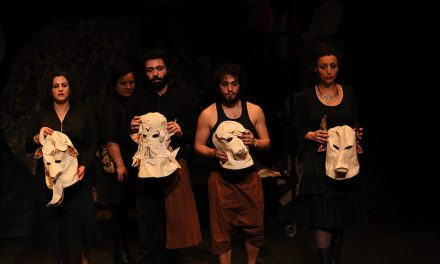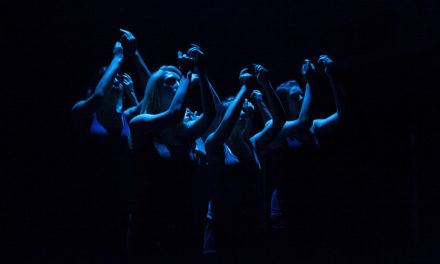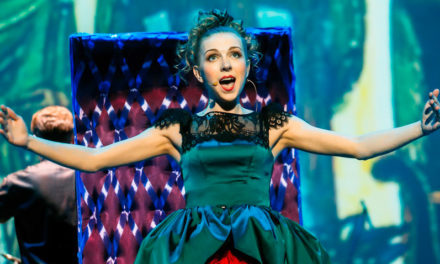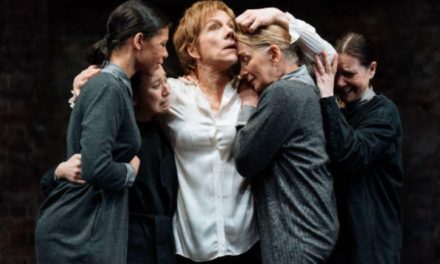Founder of theatre group PlaneTG, G Kumara Swamy’s efforts in popularizing Telangana culture through modern drama fetched him an award recently.
Cultural forms were significant protest media leading towards the Telangana Statehood movement. Theatre being one of the most economical and yet powerful mediums was used to good effect in highlighting aspects unique to the region. Theatre person G Kumara Swamy’s contribution has been instrumental in giving a structure to Telangana theatre in the last decade, grooming youngsters, experimenting with various forms of storytelling and giving a Telangana spin to English classics. The Warangal-born was fittingly rewarded the Telangana State Formation Day award this year for his efforts in popularizing modern drama in Telangana theatre.
Childhood interests
“Every community comes with its own tradition, oggu katha was ours. I grew up seeing my father perform on stage. Acting, singing, dancing were more like our hereditary traits,” Kumara Swamy says.
He used to win many a competition in childhood, took up BCA in lieu of a comfortable software job in the US. A young Kumara Swamy felt a void in his life, he wanted a mass medium to explore his strengths.
“I thought my aim wasn’t to earn money. Koduri Ravinder Goud from Karimnagar was a folk artist who inspired me to take the plunge into arts. I was managing education and arts at once.”
His penchant towards theatre and art enhanced with time, he pursued theatre studies in Telugu University and HCU.
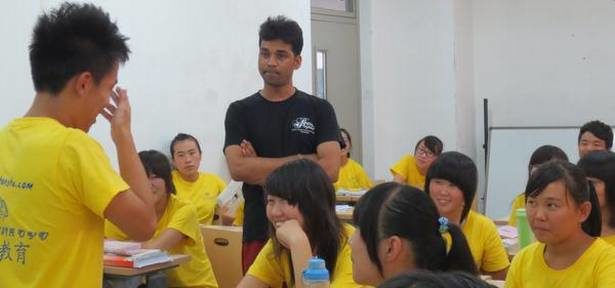
The educational stint opened his horizons, interactions with global professors and counterparts helped. Professors Manohar Swamy and Jolly Puthuserry were of great influence. It was 2004, when Telangana statehood movement gained momentum. He remembers staging a solo play, My Name Is Telangana in HCU and receiving applause from Telangana CM K Chandrasekhar Rao. His HCU stint facilitated visits to France, South Korea, Singapore, Malaysia, and China, where he performed plays, hosted workshops about how culture can play a strong role in a Statehood movement. He taught theatre, culture and also made short films and even considered making a career in China.
“I was in a dilemma whether to be part of the movement or the career in China. I chose the statehood movement, it was close to my heart.”
He established a theatre group PlaneTG, where he began grooming youngsters and theatre enthusiasts, performing skits across the state.
“PlaneTG was established at a time where government didn’t permit us for plays around statehood. So I decided to play a little smart, TG in the group is an ode to Telangana. The main motto was to highlight the history and tradition of Telangana through theatre.”
His English play Broken Images received great applause. Kumaraswamy landed an IIIT Hyderabad job where he taught music, dance, and theatre forms. His experiment with Chinese folklore, Monkey King received adulation. The IIIT forest area was used for a site-specific performance, the forest cover formed a live backdrop for the play. Another version of the play had him imbibing mythology with the Monkey King story, conceived as the story of two Gods, Hanuman and Monkey King. He later got European theatre director Maya Tangeberg to come up with Porugaali, a Telangana agitation spin to Shakespeare’s Tempest. A fictional play on Kaloji followed, situations that inspired him to write poems formed the basis of the play.
His active contribution to Telangana literature got him a role at Telangana Samskruthika Saaradhi, a government wing by/for artists in the State, ideated as a bridge between people and the government.
“This group offered me freedom. We’re now grooming people for a play, Raithanna Salaam on agricultural schemes, where we discuss possible solutions for farmers.”
He’d also recently made a short film Nenu Bratike Untanu, on teacher’s influence in a student life, a runner-up in the short film festival in WTC 2018.
The road ahead
Telangana theatre needs more funding, the format needs to be developed, sponsors need to come up, he says.
“Sound cultural policies will strengthen our culture. We could use a Habib Tanvir-like model where we bring locals in villages to perform. I want to try different styles-Yakshaganam, focus on instruments like dappu.”
This article was originally published in The Hindu on June 9, 2018, and has been reposted with permission.
This post was written by the author in their personal capacity.The opinions expressed in this article are the author’s own and do not reflect the view of The Theatre Times, their staff or collaborators.
This post was written by Srivathsan Nadadhur.
The views expressed here belong to the author and do not necessarily reflect our views and opinions.

